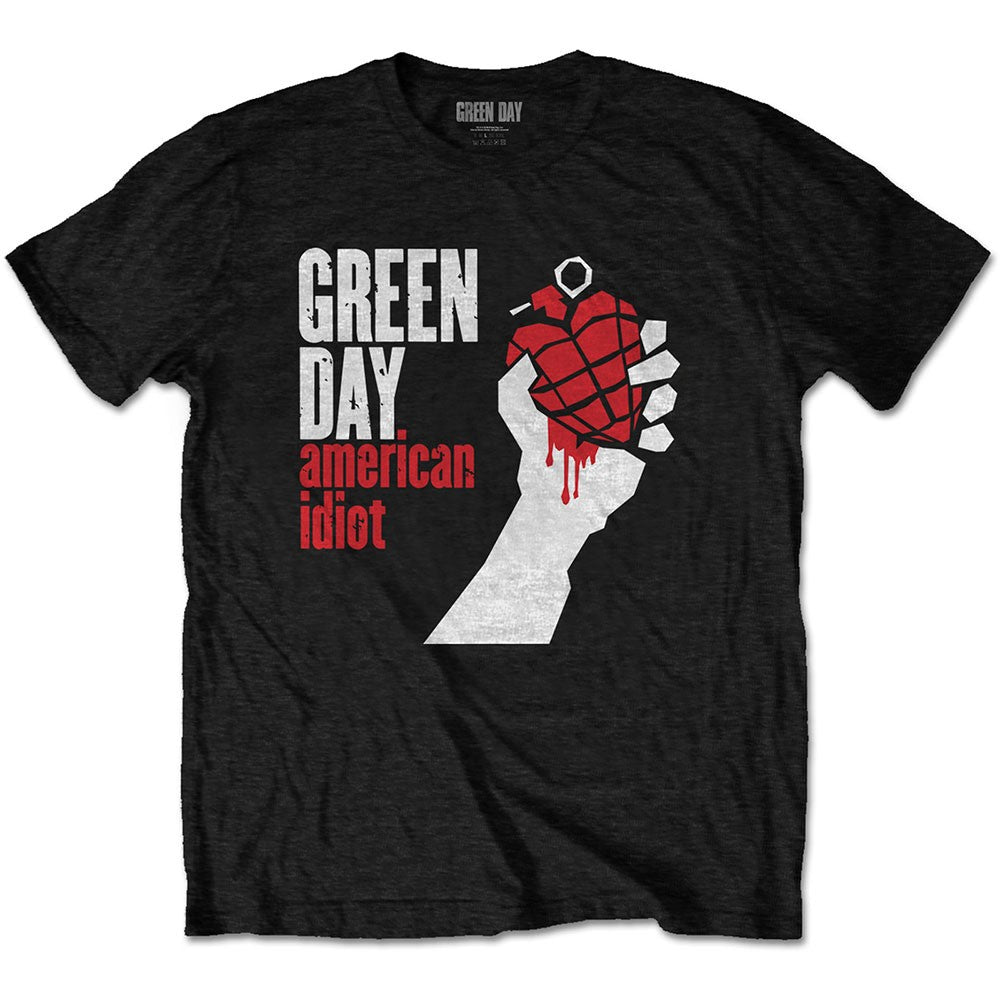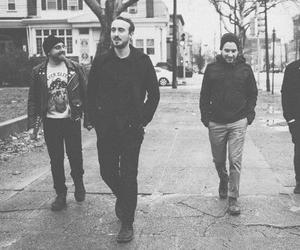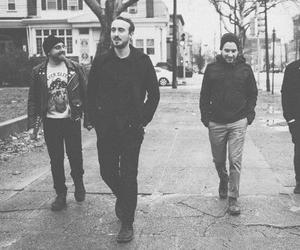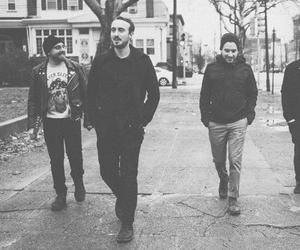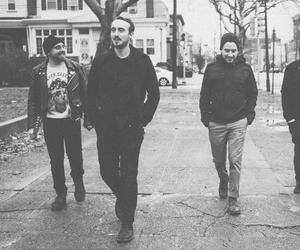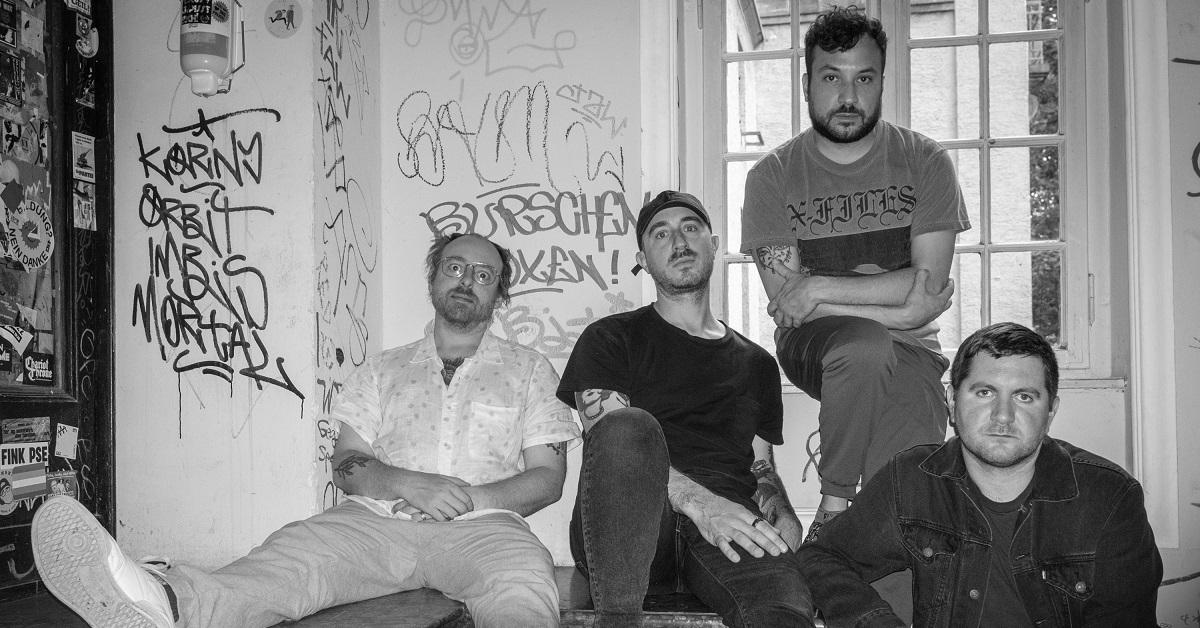
Since forming in Scranton, Pennsylvania in 2006, The Menzingers have spent the last seventeen years growing up, one song, and one record at a time. Having burst onto the scene full of youthful, shouty defiance, these staples of the American punk scene have gradually aged into master musical storytellers. In the process, the stories they’ve been telling have become the soundtrack to the lives of an evergrowing legion of dedicated fans.
When those fans press play on The Menzinger's eighth full-length record, Some Of It Was True they will be treated to the next phase of the band’s evolution, the one in which they join the ranks of rugged American troubadours like Bruce Springsteen, Tom Petty and The Replacements. It is a development that fits so naturally with the musical and lyrical styling of the band's catalogue that one might be forgiven for thinking it pre-destined.
Ahead of the release, we sat down with vocalist/guitarist Tom May for a discussion about the band's journey to creating a record as authentic and timeless as Some Of It Was True.
And Some Of It Was True A Conversation With Tom May Of The Menzingers
The Menzingers are releasing your seventh studio album Some Of It Was True. Naturally, this leads one to ponder, lyrically speaking, if only some of this record is true?
“None of it Is true, but some of it is true, and some of it is not.”
That’s brilliant, thanks for not clearing that up. Now this is a very natural and raw-sounding Menzingers album in comparison to the last few, what inspired the different approach in production?
“We decided to work with Brad Cook as the producer on this record. We went down to him in North Carolina to do a pre-pro type of situation. We showed him some of the songs that we were working on and in his words, he said we wanted us to ‘develop a vocabulary’. That’s exactly what we did, we were able to connect and get on the same page with what we were going to do.”
“During that time he said something pretty profound to us. We talked to him first and foremost and said that we wanted to make a record that sounded like the bands that we loved growing up, The Clash, and The Replacements, and work on who we are as a band. So our typical approach was to take songs that we were working on and put them into recording software and then work on them over and over again, reword them, layer things all that type of stuff. He came out and said ‘Well you guys asked me to help you record something that you have never done before, to record like these other bands, and that’s not what you’re doing. What you want to do is capture what it is that people connect to as The Menzingers.”
“From that, we realized that where we are in our career, we travel around and play music. We don’t get paid to put out records anymore, we get paid to play live shows. So that’s the big relationship that people have with our band, is coming to see us play live. That’s the relationship we have with each other, playing live. So we realized the best way forward would be to record live. So we just kind of ran with it and rolled with it.”
Now, Brad has worked with some pretty interesting artists. One of them is Bon Iver, The War On Drugs is another. There’s a lot of variety in his career. Did you find that he approached the process of recording the band in a vastly different way to producers you'd worked with in the past?
“He showed us some tracks that we hadn’t applied previously. A big part of his process was getting us into the room to play the songs live. He would only let us do it. So many times, maybe four or five, run-throughs, and then we would cherry-pick the best takes and roll it down. So it ended up being mostly recorded live. That was one trick that he taught us, which is simply just to not overcook the shit. Don't go crazy with it. His approach to helping us curate the lyrics as we were rolling them in and trying to fit in things sloppily, and everything was to reach not a broader audience but to take the core idea of what we're saying, and then boil it down. He’d make suggestions like ‘Maybe these are unnecessary things to say’, or ask ‘What's the actual emotion that you're trying to display’. That's a little bit more of an intricate and intense curation of the lyrics than we had done before.”
“Other tricks were ones he didn’t speak out loud. There’s a way that he helped us move chords. So for the more musically inclined people out there, I'll give you an example. Say we were playing a 145 progression and then you would go to a two or whatever, with a lot of the turns and some of those chords, he’d challenge us to pick different chords that weren’t the stereotypical ones or the pop ones that we’d usually go to. So that’s another trick that he taught us that I’ll carry with me for the rest of my life.”
“We've been fortunate enough that every producer that we've worked with has taught us something completely new about the recording process and about music writing, as well. I've realized and learned that the music, writing, production, recording, and even editing process is wholly accumulative. So everything that we learned from all these different people applies to everything else that we're doing in the future. There’s a tendency to kind of break things into schools of thought or approaches or methods, but is that the case? And that was one thing that Brad helped us shake out of and realize.”
As a listener, the growth in the band from record to record is noticeable and also feels naturally relatable. Does it feel like you’ve grown up alongside your fanbase
“Totally. We've got new fans along the way. We've always joked that we kind of had like a one-to-one on an XY plane, if you drew a line it was one-to-one of corresponding steady growth. And as we've gotten more popular, people have joined us and they weren't at the same point in their lives when they had joined us when you know, we had started things, so they’ll discover our older records, and it resonates with them, but it does not resonate the same way that it resonated with the people who found it at that time in their lives. We've noticed that even just anecdotally.”
“Seeing the people in our crowd, they have grown with us. And that's one thing that we try to do thematically with our music and the things that we write about. Make it a reflection of where we are in our lives now, and where we are in the broader world. Most of the people who listen to us have a relatable experience with that.”
The last time we saw you in Australia was quite a memorable experience, especially for people in Melbourne, where I live, because you ended up being the second last international act to perform live in our city before we went into a long lockdown. Were you aware of how intense things were about to get on the night?
“Man. that was a whole fucking thing. I've told the story like 1000 times now. There's so much to it. We were in Melbourne for the last show of our Australian tour, and it was a Friday night, if I can remember correctly. And the PM came on TV and was like, ‘Okay, all events above X amount of people it was 300 or 500 people or something like that, are cancelled after today’. We were able to play that show. But if we had the show on Saturday, no good. So were on our way to New Zealand where our bass player Eric, and his wife Georgia's from but we were on our way over there for the first time, and we realized ‘we’re in the same boat as everybody, there are no more shows’. So we had to book a flight home and it was like an emergency, we got some of the last seats that we could get. The next day it started to get heavy, it was wild. The next day, I went with a good friend of mine Spud who is a tattoo artist in Melbourne and a good friend of mine from Wales, Jenks, who was studying in Melbourne, he’s a physicist, and we went to a few bars and it was super fucking weird, nobody knew what were getting into.”
“We made it back to the United States. We landed in LAX and people were acting fucking crazy. Going through customs, was nuts, they were just pushing us through as fast as they could. They were relieving a lot of the security protocols. There were people in all kinds of homemade, prophylactic situations with multiple pairs of gloves on and stuff. We saw Elijah Wood there a the baggage claim. When went back to Philadelphia, they told us that anyone who had travelled internationally had to stay inside for two weeks after that.”
On the actual flight, there was this fucking kid sitting next to me, sniffling, coughing, pretty much dying the entire time. And I was like, ‘Oh, I get I'm going to get COVID. I got it Tom Hanks got it in Australia, the NBA cancelled, so all those things were going down. It was a wild experience to have to flee the country”.
Before the show, I kind of suspected we were headed towards something, not all that fun, but I didn’t understand that it would be the last chance to see any international band for a good two years. A lot of people cut loose that night as a result of the uncertainty. I’m so glad the show happened. Does it feel like we all went through something together that we’ll never forget?
“Yeah, me too. It was bittersweet in a way because we saw a bunch of really old friends whom we've not seen in person since. But it was just fucking bizarre.
Well, you’ll always have that relationship with our city I guess?
“I didn’t even tell you the crazy shit. So the craziest part was when we were staying in a hotel, not too far from where we played, there were a bunch of military personnel and contractors there. Two or three of the floors were completely cordoned off. We looked up, the military code that was on it, and it was like a quarantine type of code. It was super fucking bizarre. I don't remember the exact details, but some people had been seeking asylum they moved into the hotel, and they were guarding those floors. So we come back from the show, knowing that we have to flee the country, and this X Files shit is just fucking happening in the hotel. Yeah, it was it was crazy. Yes. It was a very, very crazy experience.”
It is interesting having you touring on a new record, given you have been involved in some of those heavily nostalgic, retrospective tours that are all the rage at the moment, playing On The Impossible Past in full. After having been so heavily involved in the process of writing new music, was it fun to get out and play the hits and revisit that formative time in your life?
“It sure was fun. There was a lot of interband resistance at first. We had a lot of ideas about how you extrapolate that into the vision of yourself that you have. Questioning ‘Am I a hack, I have to play the music I wrote when I was a completely different person’ and all those kinds of things. Then we realized that people identified with that record and were excited to hear us play it live. Going back and redoing those songs and playing them live, really subtly influenced the record, in the sense that we got to take stock and do a new exploration of where we came from. With our new minds and our new bodies, it was an interesting revision.”
“So part of the anxiety or the resistance to wanting to do this kind of 10-year tour celebration, is that we don't want to be a legacy band. You want to fight against that. You're like, ‘Well, no, I'm still an artist, I'm still me.’ I think subconsciously, you're also fighting against getting older. I don't want to be, you know, reminded that this was 10 years ago and that this has changed this much. But a lot of that completely goes out the window and gets squeegeed right off the fucking blinders, because you realize that people just love the record, and they want to share it with you. And we got to do that, and it was a beautiful experience. It was very, very cool. And it was also really funny, because when we wrote those songs, they were hard to play, and now they're a breeze, that part was pretty fun.”
Outside of music Tom, what are you a Maniac for?
“I have a lot of them. So I kind of jumped from one to another often that's a proven personality trait for many years, but one that I'm extremely passionate about and have stuck with for a long time is photography. Another is I’m an amateur mycologist, with a commercial license to sell foraged mushrooms. I have a whole microscopy set up and I find mycology, the study of fungi and mushrooms to be one of the most fascinating parts of the natural world and I'm really into mushrooms even on a joke level as well. I wear all kinds of shirts with mushrooms on them.”
If you could have any song play when you enter the room, John Cena style, what song would you like it to be?
“The last part of Dreams by The Cranberries, where all the la’s start coming in.”

Some Of It Was True is out now.


